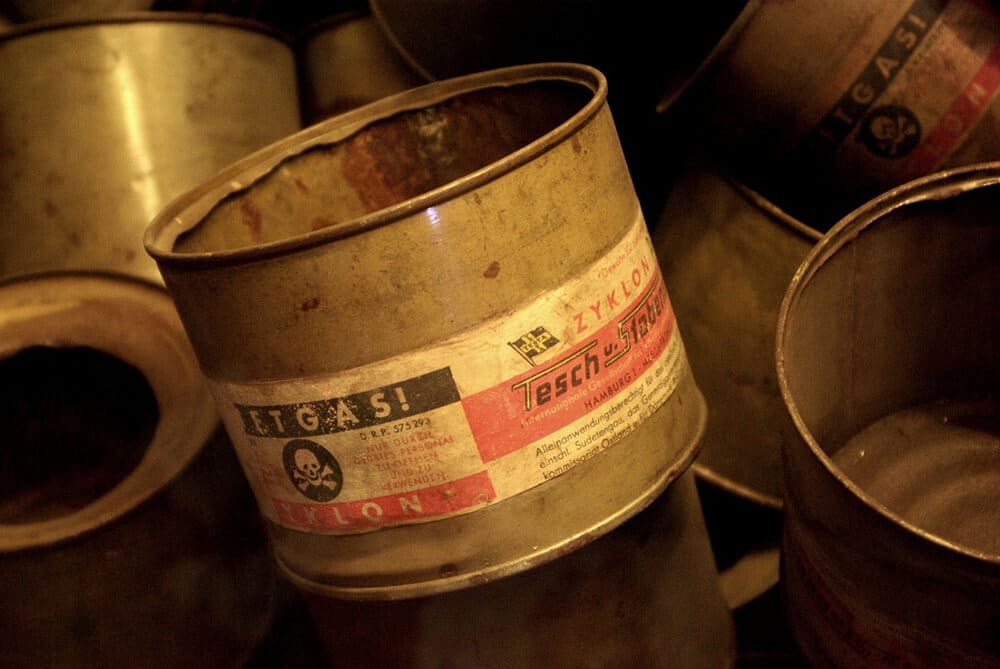What Should You Do If You Notice Hazardous Materials at a Business?

When businesses create hazardous byproducts, there are strict rules that they are supposed to follow. The United States Environmental Protection Agency (EPA) enforces these laws and regulations. However, this may not prevent some business from acting negligently. Failing to take care of hazardous materials is dangerous and can cause permanent health problems or death. If this has happened to you, Pittman, Roberts & Welsh, PLLC can help. Careless businesses need to be held liable when they refuse to follow the law.
Here’s some good information to know about how hazardous materials are handled at businesses and how you should proceed if you happen to notice materials that could potentially be dangerous on the premises:
What Are the Types of Hazardous Materials a Business Can Produce?
While large factories are what you may imagine when you think of businesses that produce hazardous materials, small businesses make these materials as well. Here are some common businesses and the types of hazards they produce that the EPA lists.
- Dry Cleaning and Laundry Plants. These usually create residues from solvent distillation, cooked powder residue, and used filter cartridges.
- Construction. Carpentry, painting, and demolition create hazards like flammable and toxic wastes and used oils and acids.
- Furniture Manufacturing. During the wood cleaning, refinishing and stripping, staining, and brush cleaning process, furniture manufacturers can make wastes that are ignitable and toxic.
- Vehicle Maintenance. When people are working with vehicles, common actions are degreasing, removing rust, preparing paint, cleaning tanks, working with lead-acid batteries, and replacing fluids like oil. The hazardous materials can catch on fire and are toxic.
- Laboratories. Labs that work in diagnostics and testing can have wastes that are contaminated.
- Equipment Repair. Repairing equipment can include cleaning, rust removal, paint removal, and it creates toxic wastes and are flammable, acids and bases, and solvents.
- Pesticide Application Services. Those who work with pesticides can have materials like unused pesticides, ignitable wastes, and accidental spills that contaminate the soil and water.
While these are a few places where hazardous wastes can be made, many kinds of businesses have byproducts that they are responsible for the safe collection and disposal of. The size of the business matters when it comes to how much hazardous materials they generate. Let’s take a look into how those are organized.
What Are the Different Categories of Hazardous Waste Generators?
Businesses produce different amount of waste. In order to keep the hazardous materials regulated, the EPA has different categories for the amount of materials produced.
- CESQGs. This stands for conditionally exempt small quantity generators, and these usually generate less than 220 lbs a month.
- SQGs. Small quantity generators typically generate between 220 lbs and 2,200 lbs per month.
- LQGs. Large quantity generators will produce more than 2,200 lbs per month.
From here, business can learn how they’re supposed to proceed when it comes to getting rid of the hazardous materials.
How Should You Get Rid of Hazardous Materials?
Business are responsible for collecting their hazardous materials and disposing of them using the proper channels. For example, wastes should not be mixed, containers should be labeled as hazardous wastes, and the container should be able to safely hold the material. When they’re stored, they have to be organized in a way so none of the containers will leak or fall over.
Should an emergency arise, immediately call 911. After contacting emergency services, you should also contact the National Response Center at (800) 424-8802. You should inform them of fires, explosions, spills that have permeated ground or water, or any situation where the materials could threaten someone’s health. They will be able to notify you on what to do.
Hazardous materials are heavily regulated so businesses know how to handle them in a way that protects their safety. If you notice that a business isn’t following these rules, then they are putting people in danger. You can contact the EPA and inform them about the issue.
Pittman, Roberts & Welsh, PLLC Can Represent You
Hazardous materials have the potential to severely harm innocent people. If you’ve been affected, you may be suffering from debilitating health problems. When businesses neglect their duties to responsibly handle waste, then they are risking people’s heal and lives. This is not okay.
You can stand up for yourself and hold those people accountable for their actions. Pittman, Roberts & Welsh, PLLC will do everything possible to show how the business’ negligence directly harmed you and resulted in your injury and financial losses. While we won’t be able to undo the injury or illness that the materials caused, we can help you secure your financial future so you’ll be able to afford your medical bills. With this stress out of your life, you can work on recovering.
Get in touch with our office today. We’ll set up a consultation, obligation-free. From there, we’ll be able to find the right path for you.







